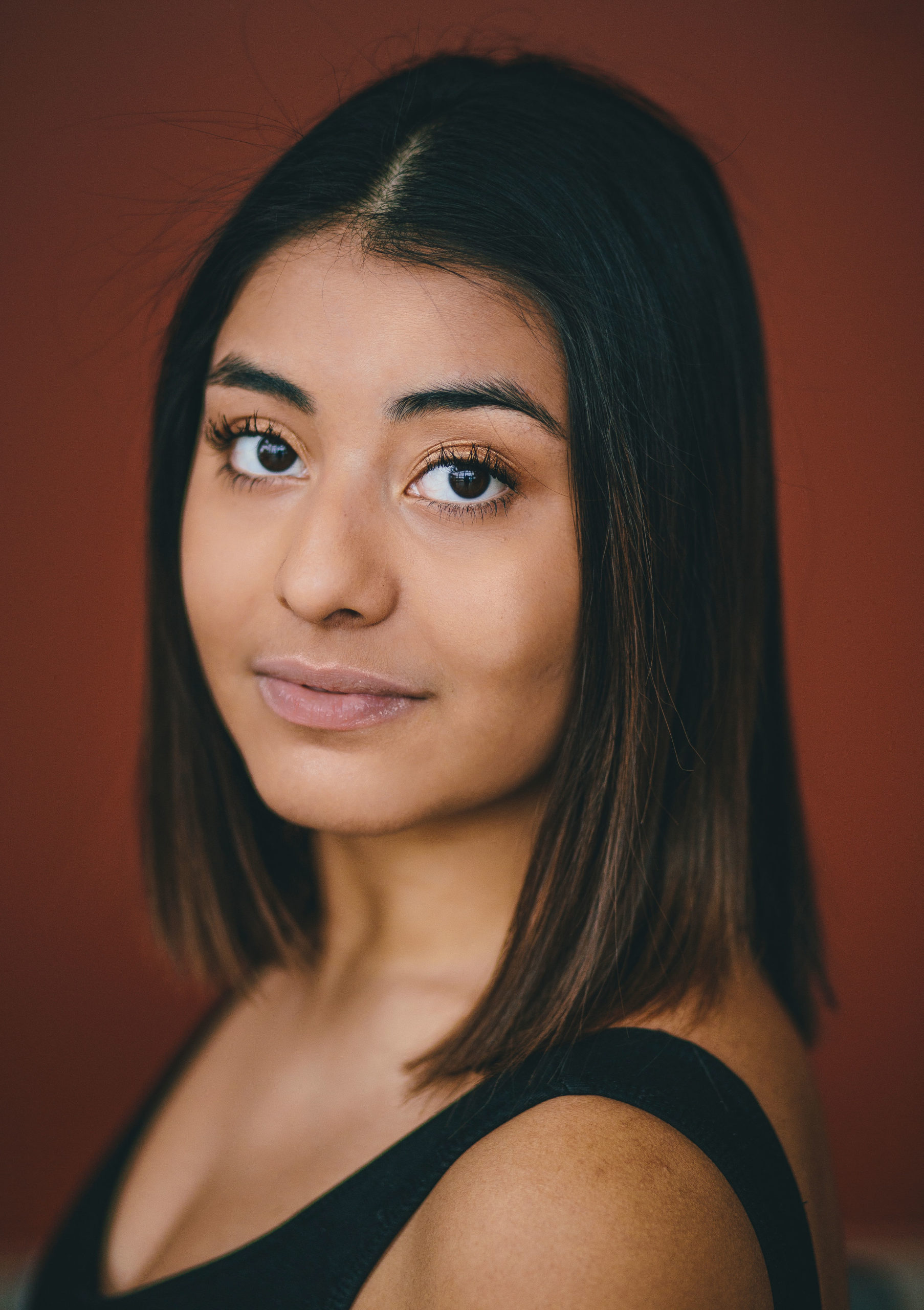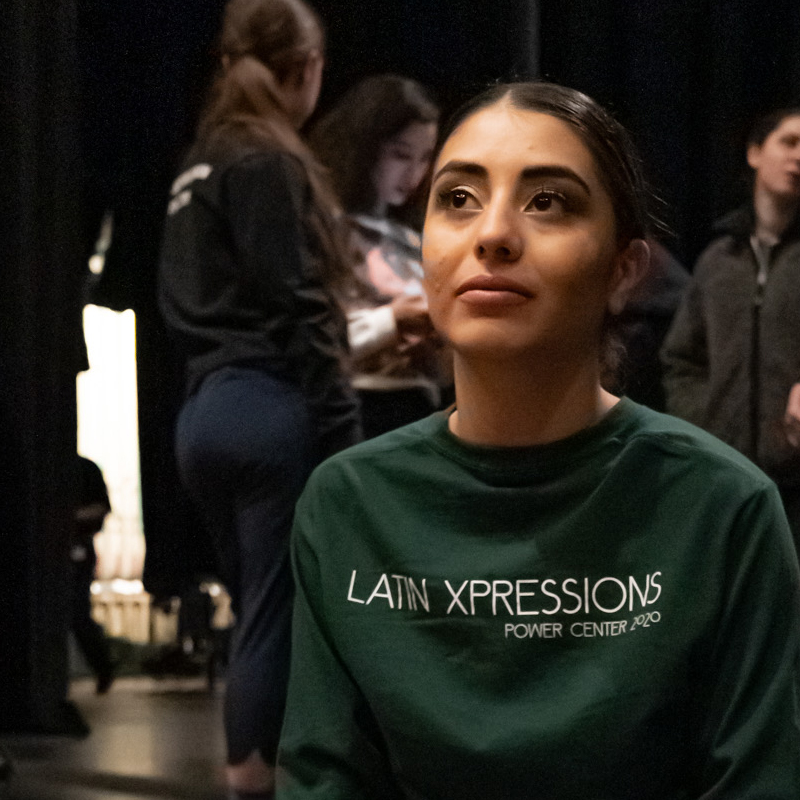
Johanna Kepler graduated in May 2020 with a BFA in Dance and a Minor in Latino Studies. During her time at SMTD, she founded Arts in Color, a student organization committed to diversity, equity, and inclusion within the arts, for which she received the Martin Luther King Jr. Spirit Award in 2019.
In 2020, Johanna choreographed a piece for Latin Xpressions, becoming one of the first students to have her work featured in the Department of Dance’s annual show. Some of her other choreography credits include Musket’s production of Cabaret in 2019 and SMTD’s Collage concert in 2018. She also choreographed for the American Dance Festival’s regional conference in 2019.
Passionate about social justice issues, Johanna has served on the Student Advisory Board for the Office of Diversity, Equity and Inclusion, and she was an SMTD Diversity, Equity, and Inclusion Ambassador.
Most recently, Johanna founded an interview series called The Power of the Performing Arts: Uniting Artists While Apart. This series documents the stories of performing artists from around world in the wake of the COVID-19 to raise awareness of how the pandemic is affecting performing arts communities.
What inspires you as a performer/collaborator?
I am always inspired by other artists and people around me. I think the stories of our lives is what drives me forward and all of my art making is inspired by the human condition. Most of the work I create is about the story of marginalized people of color in the US. I strive to use my art making as a platform to tell the stories unheard and silenced.
Why did you choose Michigan?
I chose Michigan because I could study the performing arts as well as take other academic classes that interest me. I was drawn to the idea that I could have a conservatory-style education within a larger University setting. I did not want to be confined to only studying the performing arts for four years. I believe it is extremely important to take other outside classes and involve oneself in the world outside of the performing arts. Through my Latino Studies minor, I became passionate about studying immigration law. I have used the knowledge I have acquired from studying immigration law to influence my art-making and help me understand the complex broken systems in the world around us.
How have you adapted your artistic practice during the pandemic?
I created the interview series project The Power of the Performing Arts: Uniting Artists While Apart on March 9, 2020. My goal is to make a platform in which artists can continue to share their stories, create community through technology, and raise awareness of how the COVID-19 pandemic is affecting performing artists in the US and around the world. Currently over 300 artists are involved. I have interviewed performing artists, directors, choreographers and producers from on- and off-Broadway, regional theaters across the country, as well as major dance companies such as Martha Graham Dance Company, Hubbard Street Dance Chicago, New York City Ballet, Gibney Dance, Alvin Ailey American Dance Theater, Dance Theater of Harlem, freelance artists, and more.
The website launched April 24. You can follow us on Instagram and Twitter.
All of the interviews will also be translated into Spanish to reach a wider audience and include a larger demographic whose primary language may not be English. As a Latina and immigrant myself, my main focus in community engagement is the idea of access. Who do you reach? Who do you let reach you?
How do you incorporate dance into your social justice work?
I am a choreographer, dancer, and activist. All of these elements of myself go hand in hand. As an artist we strive for the authentic, raw, and deepest emotional parts of ourselves and humanity to show on stage. We are asked to be vulnerable, open and honest in every part of our work and art making. We show and express the human condition on stage. And in doing so, open the hearts and minds of audience members worldwide. What may be a hard political conversation can be made accessible and possible through the platform of dance and the performing arts. All of the work that I make has to do with social justice issues in the US. My junior year of school I created a piece called “Through the Eyes of My People.” This work was a solo I choreographed for myself that featured a sound score composed of several interviews of Asylum seekers coming from Central America to the US during the peak of the immiration crisis in 2018. The interviews were read by several Latinx students from UM. I am adopted from Guatemala, and these interviews and stories deeply touched me. I wanted to share these stories that are often silenced and use my platform as an artist to shed light and raise awareness about the broken immigration system in the US. This piece was selected to perform at American Dance Festival regional conference in Springfield Ohio that same year representing UM.
How do you feel graduating during a global pandemic?
I graduated in the midst of a global pandemic. I, like many seniors across the country, felt cheated out of my senior year and the weight of uncertainty on my future. I have no job, no auditions lined up, the industry I want to go into is at a mass halt, and the incredible training I have received the past four years did not and could not prepare me for the reality of our world today, or so I thought.
What I have learned during the interview series project I started is artists are the most innovative and resilient people I know. Talking to artists everyday about how they are dealing with the current state of the US and the global pandemic is beyond inspiring. As artists we know what it is to be out of work, living in an uncertain world, working day jobs so we can do what we love. We know living out of a suitcase on the road for months, filing for unemployment between gigs, and in the blink of an eye getting the dream job or getting that one hundredth rejection. Because of this we know resilience, and we know adversity. Maybe artists were born innovators or maybe it is the lifestyle. The life of an artist is not easy nor has it ever been easy. We adapt. We shape shift. We market ourselves for the job, the audition, the show. We make it work. We breathe in hardship and we breathe out hope. Otherwise we would not be artists. That is what these interviews give us all a sense of hope and unity in a time of social distance through the power of the performing arts.

